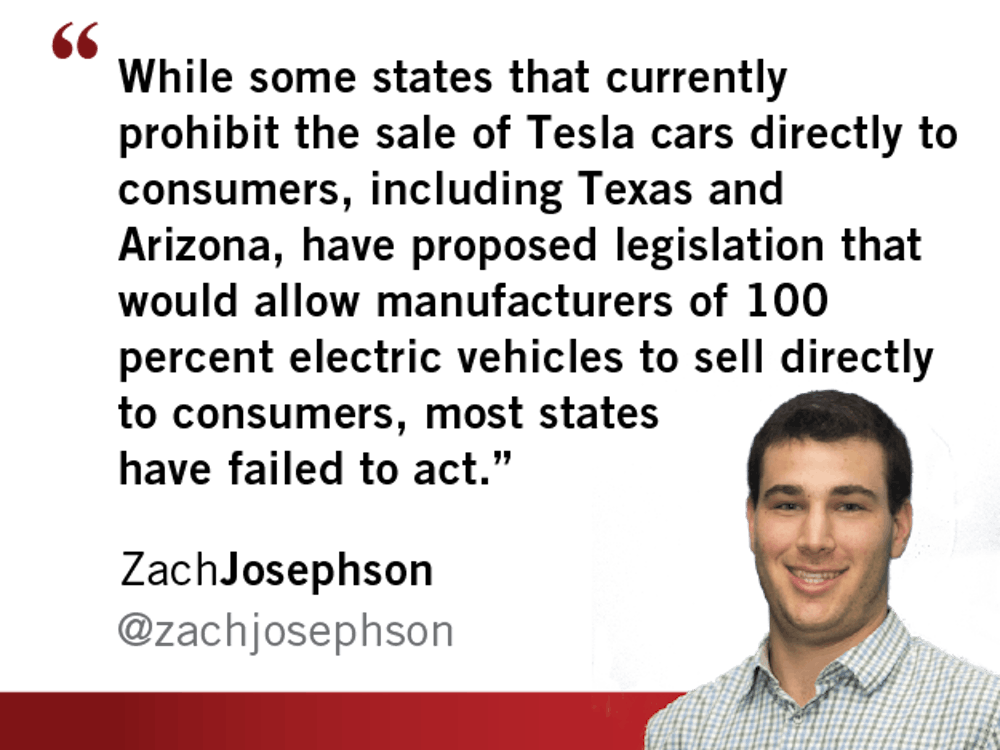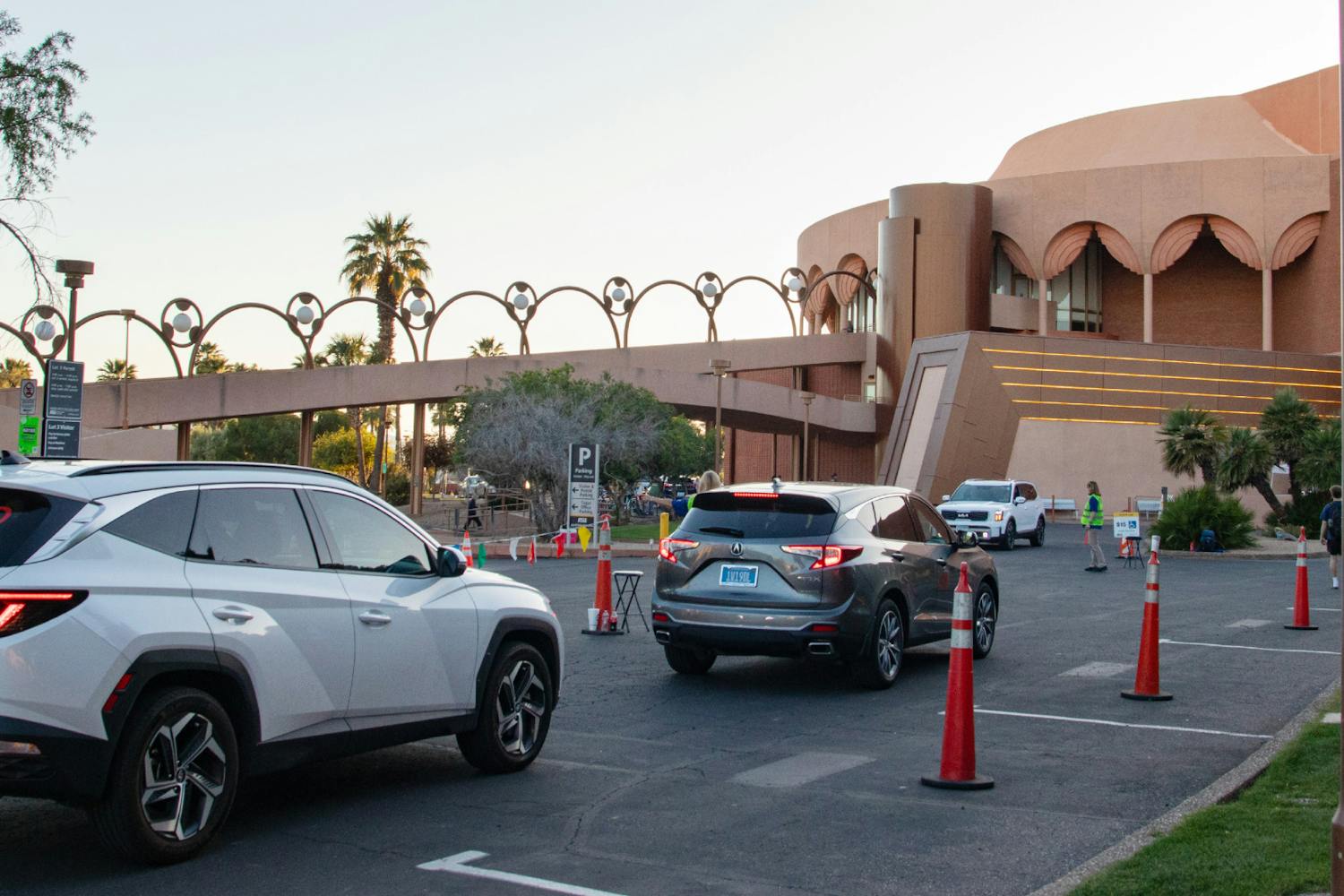Tesla Motors has become the most well-known electric car manufacturer in the country; yet, many states have not been so keen on the brand. Certain states won’t let Tesla sell its cars in their state as a result of clearly antiquated regulations. In the current age of technological innovation, it’s time to lessen regulation so that an innovative car company can try something new.
Instead of using the traditional method with a network of independent dealers to sell their cars, Tesla has chosen a model in which they sell their cars directly to the end users similar to the way that Apple owns and operates its own stores. Many states, however, have laws that ban the direct sale of cars from manufacturer to consumer; thus, Tesla has had to develop burdensome workarounds in each state. In many states, Tesla has galleries where people can look at, learn about, and in some cases test-drive a car.
However, people in other states aren’t so lucky. According to a Chicago Tribune article, Tesla has established two galleries in Texas where people can go to see the cars, “but employees can't tell you how much the car costs. They can't offer you a test drive. They can't even give you their website address.” Texans who are interested in buying a car are inconvenienced by having to go through Tesla’s online store and sometimes complete their purchase without having taken a test-drive.
To further the harm toward the consumer, when owners in Texas need to have their car serviced, they may take their car to a local subsidiary, Tesla Motors TX, but according to Tesla’s website, “The local repair centers – currently in Austin and Houston – cannot advertise that they do warranty repairs nor can they discuss any additional repair needs or concerns with the customer.” Instead, the customer must communicate with Tesla’s offices in California, which will then communicate with the local subsidiary.
While some states that currently prohibit the sale of Tesla cars directly to consumers, including Texas and Arizona, have proposed legislation that would allow manufacturers of 100 percent electric vehicles to sell directly to consumers, most states have failed to act. The opportunities to loosen the regulations have met strict opposition from independent dealers as well as most manufacturers.
In a recent meeting of the Arizona Senate Committee on Commerce, Energy, and Military, an amendment to HB 2123 was proposed to allow the sale of Teslas within the state. At that meeting representatives from both the Alliance of Automobile Manufacturers and Arizona Auto Dealers Association testified in opposition to the amendment.
There are generally two arguments against allowing direct sales to consumers. The first is that independent dealers need protections from manufacturers selling directly to consumers and second, consumers need protections from manufacturers.
In today’s world, independent dealers have a monopoly over new car sales. This wasn’t always the case, and for a long time, dealers argued that they needed more protections to prevent manufacturers from selling cars directly to consumers. The independent dealers no longer need these protections from the manufacturers. According to a blog post made by the Federal Trade Commission, “Instead of 'protecting,' these state laws became 'protectionist,' perpetuating one way of selling cars — the independent car dealer.” Dealers are entrenched in the car-buying experience, and there’s no doubt that they will continue to be the primary method of distribution for the existing manufactures. They no longer have a need for these regulations.
Not only do the regulations no longer protect dealers, they have also harmed consumers by reducing the competition for their dollars. The FTC post goes, saying, “We have consistently urged legislators and regulators to consider the potential harmful consequences this can have for competition and consumers.” When the number of car buying options increases, the consumers benefit, because each seller has to be more competitive.
Tesla should be free to develop a new model to better serve its customers and the market, not regulations, should decide which methods of delivery can compete. State legislators across the country need to stop allowing the entrenched methods to dominate the market. They need to make a move to allow new, more efficient ideas to compete with the older, antiquated methods.
Reach the columnist at zjosephs@asu.edu or follow him on Twitter @zachjosephson
Editor’s note: The opinions presented in this column are the author’s and do not imply any endorsement from The State Press or its editors.
Want to join the conversation? Send an email to opiniondesk.statepress@gmail.com. Keep letters under 300 words and be sure to include your university affiliation. Anonymity will not be granted.
Like The State Press on Facebook and follow @statepress on Twitter.





